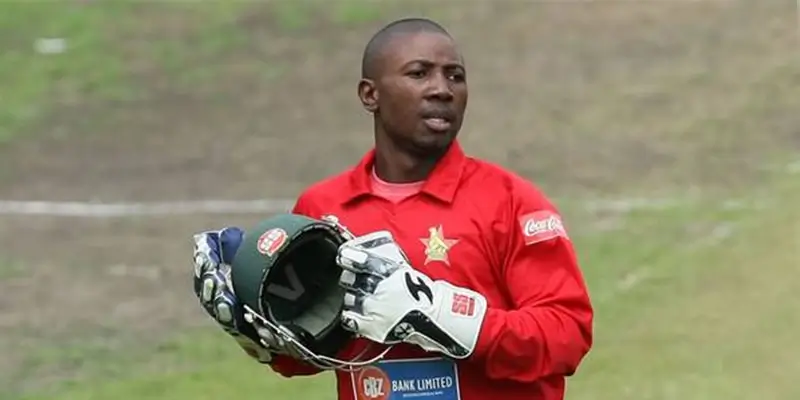Tatenda Taibu, born on 14 May 1983, isn’t just a name in cricket history; he symbolises courage, faith, and bold choices. At 20, he became the youngest Test cricket captain, leading Zimbabwe with maturity beyond his years. Yet, what sets Taibu apart is his decision to retire at 29, not due to injury or scandal, but to serve God. This article explores Taibu’s remarkable journey, from his rise to captaincy, his sudden retirement, to his current role, highlighting how faith and cricket intertwined in his life. We’ll also answer common questions like why he retired, what he’s doing now, and how politics shaped his career, queries often seen in Google’s “People also ask” section.
Early Life and Rise to Captaincy
Tatenda Taibu’s cricket journey began when most kids are still in school. He made his first-class debut at 16 and his international debut at 18, showcasing prodigious talent. By 20, he was named captain of Zimbabwe’s national team, becoming the youngest Test captain ever, a record he held until 2019 when Afghanistan’s Rashid Khan surpassed it (Wikipedia).
Taibu played for teams like Namibia and South Africa’s Cape Cobras. His batting shone in matches like the 107 not out against South Africa in 2007, the first ODI century by a Zimbabwean against them. In the 2011 World Cup, he scored 98 against Canada, aiding a huge win. His stats are notable: 1,546 Test runs at 30.31 with one century, and 3,393 ODI runs at 29.25 with two centuries. As a wicket-keeper, he was reliable, taking many catches and stumping in Zimbabwe’s success against the good teams.
Breaking Records
At 20 years and 358 days, Taibu became the youngest Test captain, a feat that marked him as a cricketing prodigy. This role showed the trust Zimbabwe Cricket had in him. Leading a national team so young is rare and pressure-filled, but Taibu managed it with grace, setting a standard for future leaders.
Career Highlights
Taibu’s career had many high points. His 2007 century against South Africa and 98 in the 2011 World Cup were standout moments. He was the fifth Zimbabwean to score 3,000 ODI runs. Here’s a table of his career stats:
|
Format |
Matches |
Runs |
Average |
Centuries |
Fifties |
Wickets |
Best Bowling |
|---|---|---|---|---|---|---|---|
|
Tests |
28 | 1,546 | 30.31 | 1 | 12 | 1 | 1/27 |
|
ODIs |
150 | 3,393 | 29.25 | 2 | 22 | 2 | 2/42 |
|
First-Class |
119 | 7,015 | 37.71 | 12 | 50 | 25 | 8/43 |
|
List A |
231 | 5,426 | 30.82 | 5 | 35 | 14 | 4/25 |
These figures highlight a career of consistency, making his early exit surprising.
The Decision to Retire
In July 2012, Taibu shocked the cricket world by retiring at 29. His reason was to focus on church work. “I just feel that my true calling now lies in doing the Lord’s work,” he said (Hindustan Times). This was rare; few athletes leave at their peak for spiritual reasons.
His faith grew stronger amid career challenges, including political issues in Zimbabwean cricket. In his 2019 autobiography, Keeper of Faith, his beliefs helped him navigate threats to his life and family, guiding his decision to step away from cricket.
Faith Over Fame
For Taibu, cricket was a platform to express faith. Retiring showed his belief that serving God trumped fame. This choice is rare in sports, where glory often overshadows personal values. Taibu’s story resonates with those who prioritise spirituality, proving that fulfilment can lie beyond the cricket field, like New Zealand vs South Africa.
The Impact of Politics on His Career
Taibu’s career was deeply affected by Zimbabwe’s political landscape. In Keeper of Faith, he describes how politics infiltrated cricket, impacting players’ lives (ESPN). In 2005, he resigned as captain and retired from international cricket due to threats from those linked to the ruling ZANU-PF party.
He faced chilling intimidation, like a minister showing him photos of dead bodies. His wife was followed by government vehicles, creating constant fear. These events forced Taibu to flee to South Africa, where he played briefly before returning to Zimbabwe. Even after his return, political tensions persisted, contributing to his 2012 retirement.
Zimbabwean cricket has faced ICC suspensions due to such interference, highlighting systemic issues. Taibu’s courage in speaking out, as noted in The Guardian (The Guardian), shows his commitment to integrity.
Life After Cricket
Post-retirement, Taibu moved to Liverpool, England, joining Hightown St. Mary’s Cricket Club as a player-coach in 2016. He returned to Zimbabwe in 2016 as a selector and development officer, helping players like Brendan Taylor return to the national team.
2019 he published Keeper of Faith, sharing his cricketing and personal struggles. In 2018, he briefly returned to playing for Badureliya Sports Club in Sri Lanka, showing his love for cricket remained (Daily News).
A New Chapter
Taibu now coaches Papua New Guinea’s national team, the PNG Barramundis (Cricket.com). This role lets him share his expertise while living his faith. Coaching is a new way for Taibu to stay connected to cricket, balancing his spiritual and professional life like the godfather of cricket.
Legacy and Impact
Taibu’s legacy goes beyond stats. He broke barriers as the youngest Test captain and Zimbabwe’s first black captain. His retirement for faith added depth to his story, inspiring those who value beliefs over fame. Keeper of Faith offers a raw look at his challenges, especially in a politically unstable Zimbabwe.
His influence continues as a coach and author, showing that courage and faith can define a legacy. Taibu’s journey proves success isn’t just about runs but about staying true to one’s values.
Tatenda Taibu’s story involves talent, faith, and bold choices. From the youngest Test captain to retiring at 29 for God, to coaching the PNG Barramundis, his life weaves diverse experiences. He shows you can serve both faith and cricket. His journey reminds us that success is about living true to your values, not just scoring runs.




